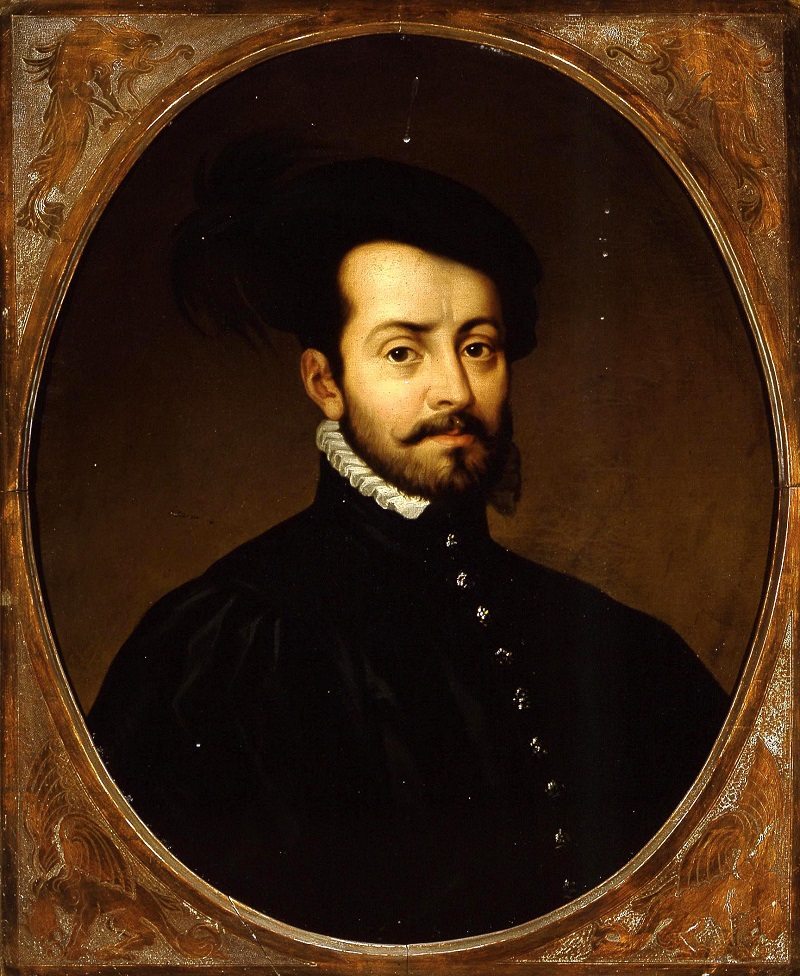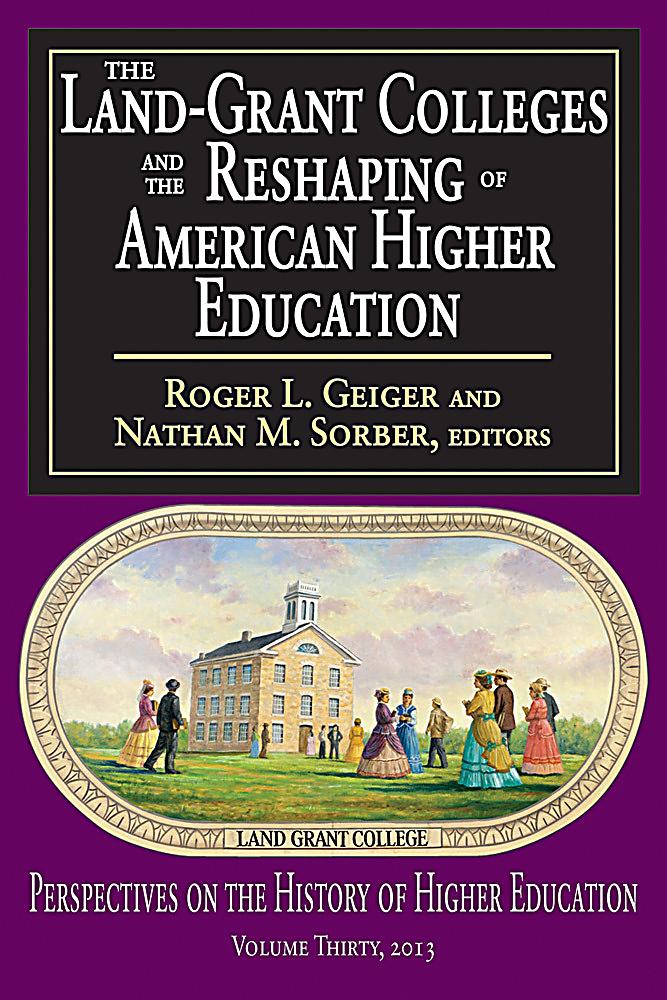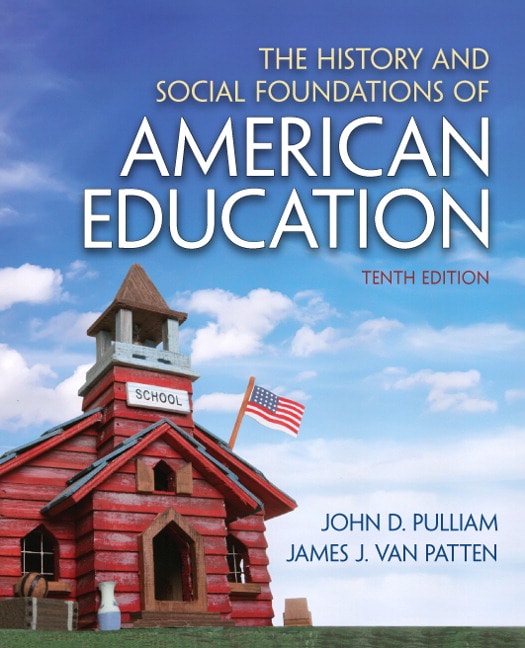Colleges and universities are among the most cherishedand in the United States. In this updated edition of A History of American Higher Education, John R. Thelin offers welcome perspective on the triumphs and crises of this highly influential sector in American life. 1998 The Higher Education Act is amended and reauthorized requiring institutions and states to produce report cards about teacher education. 1998 Google cofounders Larry Page and Sergey Brin set up a workplace for their newly incorporated search engine in a Menlo Park, California garage. In this updated edition of A History of American Higher Education, John R. Thelin offers welcome perspective on the triumphs and crises of this highly influential sector in American life. Thelin s work has distinguished itself as the most wideranging and engaging account of the origins and evolution of America s institutions of higher learning. History of Women in American Higher Education. Including women students, faculty, staff, and alumnae at trade schools, academies, seminaries, colleges, universities, and other educational organizations in the United States over the past three centuries. A history of American higher education. [John R Thelin In A History of American Higher Education, Thelin offers a wideranging and engaging account of the origins and evolution of America's public and private colleges and universities, emphasizing the. higher education shifted from hope to an expectation status of women was elevated due to the GI Bill as the kids of these veterans (let's say of them being female) went to college the GI Bill was revolutionary and major tipping point in the history of our country. The final major philosophical influence on American higher education is a widespread commitment to equal opportunity and social mobility. Higher education was an elite activity for much of its history, excluding individuals based on gender, religion, raceethnicity, and. Since this is an article on history of education perhaps a step by step reference to education system during various times of human history may have been included. The article directly moves from. The History of American Higher Education is an impressive achievement. The prose is consistently clear and accessible, the coverage is comprehensive, and the breadth and depth of knowledge are downright incredible. American higher education today looks nothing like it did a few generations ago, let alone at the founding of the country. A new book, The History of American Higher Education: Learning and Culture From the Founding to World War II (Princeton University Press), explores how colleges evolved. This fact is just one of the many fascinating details Thelin reveals in his comprehensive account of the history of American higher education. Thelin takes great care in delineating chapters by connecting each with theme and dates. A Brief History of American Higher Education. Our modern notion of the university has deep roots in the institutions of higher learning found in the ancient and medieval worlds. In A History of American Higher Education, Thelin offers a wideranging and engaging account of the origins and evolution of America's public and private colleges and universities, emphasizing the notion of sagathe proposition that institutions are heirs to numerous historical strands and numerous attempts to address such volatile topics as. Q: Can you explain what is the NEA in History Of American Education? A: NEA stands for National Education Association. It was developed in 1917 to create a broad platform for teachers and educators in the nation. The association promoted teachers education and working conditions. Connect History is an easytouse learning platform that gives instructors access to engaging assignable and assessable tools, such as primary sources and interactive mapsall of which are tied to learning objectivesthat support student success and help bring history to life for students. A History of American Higher Education is a 'must read' for any scholar either teaching or taking a course in educational history. Historical Studies in Education. Geiger (Higher EducationPenn State Univ. ; Tapping the Riches of Science: Universities and the Promise of Economic Growth, 2007, etc. ) offers an encyclopedic history of American colleges and universities, ending as the United States entered World War II. The roots of controversy surrounding higher education in the US extend deep into the past. This original, incisive history goes far in offering a needed sense of perspective on current debates over such issues as access, costs, academic quality, social equity, and curricula. The comprehensive history of higher education (Veysey, 1965) details the profound shift that occurred in the late nineteenth century, when the American college emerged as the American university (from the colonial university) and the concept of a research university as a hegemonic model of higher education came as a positive phenomena. The most indepth and authoritative history of the subject available, The History of American Higher Education traces how colleges and universities were shaped by the shifting influences of culture, the emergence of new career opportunities, and the unrelenting advancement of knowledge. The thoroughness, judiciousness, and clarity of this book make it the gold standard on the subject. Encyclopedic in coverage, The History of American Higher Education commands more information, scholarship, and analysis than any other work of its kind. Geiger is the acknowledged leader in the field. Indeed, his A History it represents, and, in most instances, how it is con of American Higher Education (2004) is a standard nected to the broader higher education context. course text in many higher education graduate Chapter 1, Colleges in the Colonial Era, pro programs across the country. HIED 648 History of American Higher Education West Virginia University FALL 2015 Instructor Contact Information Nathan M. Assistant Professor of Higher Education Administration West Virginia University Morgantown, WV Skype: nathan. sorber Office hours by appointment Course Description The purpose of the History of Higher Education course is to. American higher education today is a unique and powerful system. Beginning with the establishment of Harvard College in 1636, the great American experiment in higher education has undergone extensive growth and change since the colonial era. The History of Higher Education in the United States. Home Education Advisor In Depth The History of Higher Education in the United States. Exploring The Heritage Of American Higher Education: The Evolution Of Philosophy And Policy (Oryx Press, 1999). Rudolph text Events in this timeline have been selected, in part, based on an understanding of the major eras and historical events that have shaped American higher education, as outlined in Rudolph, F. The American College University: A History. Athens, GA: The University of Georgia Press. This course examines the development of American higher education from the colonial period to the present. It aims to help students understand the origins of contemporary practices and problems in higher education. The class will explore five major topics: (1) changes in the purpose of higher. A History of American Higher Education John R. Thelin History Brown University M. Regents Fellow Current Accomplishments University Research Professor The most indepth and authoritative history of the subject available, The History of American Higher Education traces how colleges and universities were shaped by the shifting influences of culture, the emergence of new career opportunities, and the unrelenting advancement of knowledge. bureau of education bulletin, 1922, no. 26 philanthropy in the history of american higher education by jesse brundage sears associate professor of education, want) Higher education in the United States is an optional final stage of formal learning following secondary education. Higher education, also referred to as postsecondary education, third stage, third level, or tertiary education occurs most commonly at one of the 4, 627 Title IV degreegranting institutions, either colleges or universities in the country. At a time when American higher education seems ever more to be reflecting on its purpose and potential, we are more inclined than ever to look to its history for context and inspiration. I used this textbook in my History of American Higher Education graduate course. For a textbook, it was pretty enjoyable to read. As others have said, Thelin does ramble sometimes, but the material is easy to read, understand, and digest. The history of American higher education has been shaped by a great number and variety of actors and influences, each of which is ably represented and explained in Thelins compendium of Essential Documents. The volume is more than a handy reference guide for the librarys or the professors bookshelf, but is a wonderful teaching tool. Many histories have been written of American higher education, but Charles Dorn has taken a new approach in For the Common Good: A New History of Higher Education in America (Cornell University Press). The book is in some senses chronological, telling the story of the founding of the early New England institutions and proceeding onward. A History of American Higher Education is a 'must read' for any scholar either teaching or taking a course in educational history. Herrera Historical Studies in Education ) to the formation of American higher education including the creation of class distinctions (freshman, sophomore, etc. ), the formation of religiously centered colleges and the growth of extracurricular activities have had a huge impact on the history of hazing. The history of religion in American higher education can be divided into three periods or phases: Protestant, Privatized, and Pluriform. During the Protestant era (from the colonial period to about 1900), religion and character formation were central concerns even for schools not associated with a specific church or denomination. Lucas's American Higher Education: A History purports to do just that. While the book does an admirable job of linking the developments of American higher education with its European origins, more fully integrates marginalized groups than either Rudolph, Veysey, or many other earlier historians, and is compelling on the subject. A History of American Higher Education is a must read for any scholar either teaching or taking a course in educational history. Book ReviewsComptes rendus 139. HIST 4004 will emphasize selected parts of the history of higher education, including the beginnings of (1) gender desegregation and (2) racial desegregation. Through work in primary and secondary sources, students will individually develop an expertise in A History of American Higher Education is a 'must read' for any scholar either teaching or taking a course in educational history. Herrera Historical Studies in Education Related Links The History of American Education: The board of education in St. Louis, MI establishes the first successful public school kindergarten. It opens in the Des Peres School with 42 students. The Childrens Aid Society of New York historyeducation. qxd Author: user The influence of geography on the history of American higher education Differing views of history, including political, racial, gender, and religious considerations. Research writing: integral to the process of learning history, making meaning of historical concepts Higher education faculty were among the first to join the education union movement when the American Federation of Teachers formed in 1916. Professors at Howard University in Washington, DC formed the first AFT higher education local in 1918, followed by faculty groups at colleges and universities in New York, Illinois, and California. Invited audience members will follow you as you navigate and present; People invited to a presentation do not need a Prezi account; This link expires 10 minutes after you close the presentation; A maximum of 30 users can follow your presentation; Learn more about this feature in our knowledge base article HISTORY OF AMERICAN EDUCATION WEB PROJECT. This page was last edited on It was originated and is currently maintained by Professor Robert N. Raymond McKenna, longtime Professor of Philosophy and History of Education at Eastern Illinois University..











